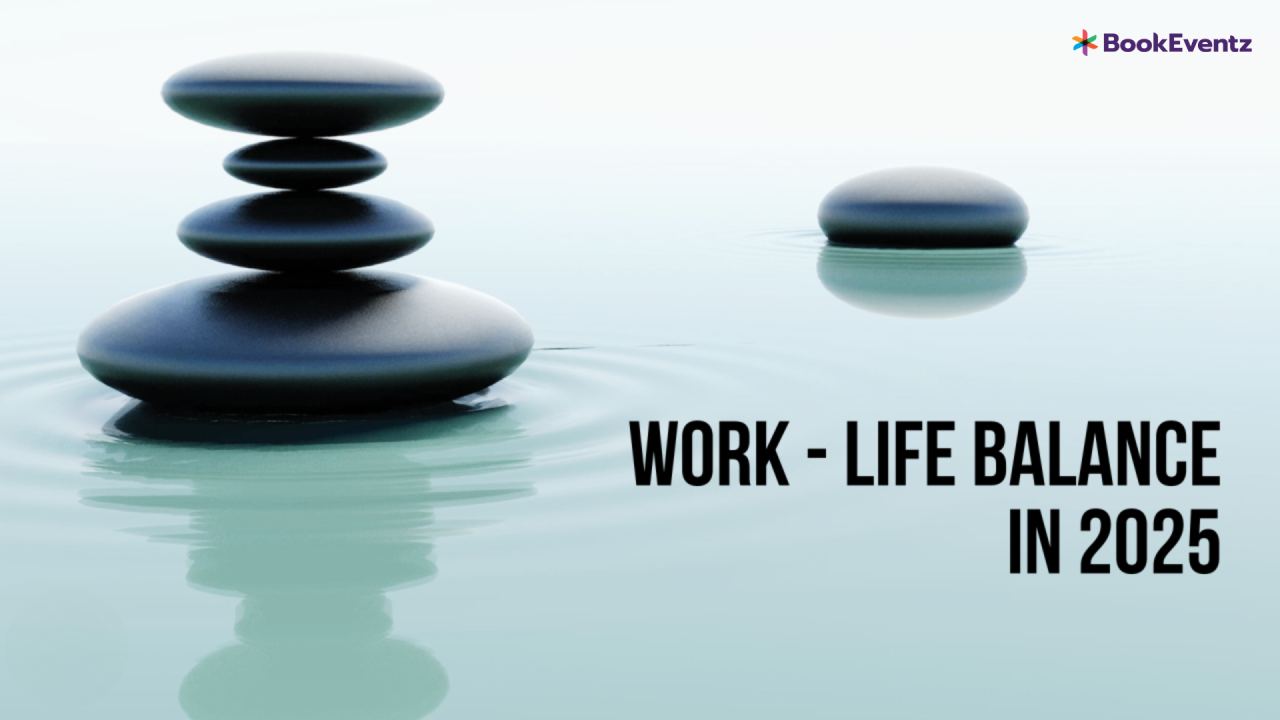Gulf work-life imbalance is becoming a critical issue in 2025. As the region continues to thrive economically, the fast-paced lifestyle, demanding jobs, and digital connectivity have blurred the lines between professional and personal life. While the Gulf countries are known for growth and luxury, this success comes at a cost—an increasing struggle to maintain a healthy balance between work and life.
Professionals in countries like the UAE, Saudi Arabia, Qatar, Kuwait, and Bahrain are now showing clear signs of stress, burnout, and declining well-being. Experts are raising red flags, urging immediate reforms to avoid long-term mental and physical health consequences.
Let’s explore how Gulf work-life imbalance is impacting people in the region and what steps can be taken to fix it.

1. Increased Mental Stress and Burnout
One of the most urgent signs of Gulf work-life imbalance is the sharp rise in mental stress. Employees are reporting anxiety, sleeplessness, and lack of motivation due to extended working hours, tight deadlines, and the pressure to constantly be available.
In 2025, remote working has not solved the problem—it has only moved stress from the office to the home. People are now expected to answer emails and attend calls late into the night, disturbing their personal lives and rest.
2. Decline in Physical Health
Physical health is another major victim of the Gulf work-life imbalance. Lack of exercise, irregular sleep, and poor eating habits are becoming more common. Office workers are spending most of their day sitting, with little time for walks, workouts, or even meal breaks.
Medical reports from the region show a rise in lifestyle diseases such as obesity, diabetes, and heart-related conditions—especially among professionals aged 30 to 50. With long commutes and high job expectations, people often skip physical activities altogether.
3. Family Relationships Suffering
Family bonding time is shrinking as Gulf work-life imbalance grows. Parents are missing school events, family dinners are rushed, and weekends are spent catching up on work rather than relaxing with loved ones.
Children are feeling emotionally distant from their working parents, and couples are finding it harder to spend quality time together. This is slowly creating emotional gaps and increasing stress at home.
4. No Clear Boundaries Between Work and Life
The fast digital lifestyle in Gulf cities like Dubai and Doha has removed the separation between work hours and personal hours. Mobile phones and laptops keep people connected to their offices 24/7, making it hard to mentally disconnect and relax.
This digital dependency fuels the Gulf work-life imbalance, leaving employees feeling like they’re always “on-call.” Even vacations are often interrupted by work emails and urgent calls, reducing the benefit of breaks.
5. Workplace Pressure to Overperform
In many Gulf companies, there is a competitive culture that celebrates long working hours and non-stop productivity. Employees often stay back late just to be seen as hardworking, even if their tasks are complete.
This pressure to overperform feeds the Gulf work-life imbalance, where taking time off is seen as weakness. As a result, employees are not taking their annual leaves or using mental health days, leading to a rapid increase in burnout cases.
6. Rising Resignation and Quiet Quitting
One of the most recent effects of Gulf work-life imbalance in 2025 is the trend of “quiet quitting”—where employees mentally detach from their jobs and do the bare minimum. Others are quitting entirely, looking for freelance roles or remote jobs with flexible schedules.
These changes show how dissatisfaction is rising. If companies do not take urgent steps, they may lose top talent who are simply tired of the constant pressure.
7. Lack of Workplace Wellness Programs
Despite the rise in stress and burnout, many Gulf companies still lack strong wellness initiatives. Employee assistance programs (EAPs), counseling, yoga breaks, and flexible working options are missing from most workplaces.
This lack of support increases the effects of Gulf work-life imbalance, especially among young professionals and foreign workers who live far from family and support systems.
Why Is This Happening?

The Gulf region is growing fast—with projects like Saudi Vision 2030 and Dubai’s global expansion goals pushing companies to meet high performance standards. While this growth is important, it often comes at the cost of employee well-being.
The cultural work ethic in the Gulf, combined with high living costs and competition, has led many to accept long hours and skipped vacations as the norm.
What Can Be Done?
Addressing Gulf work-life imbalance requires joint effort from employers, employees, and policymakers.
Companies can:
- Set clear work hours and respect employee time
- Introduce mental health programs
- Offer hybrid or flexible working schedules
- Encourage employees to take leave without guilt
Employees can:
- Set boundaries for work and personal life
- Unplug from devices after work hours
- Take regular breaks and vacations
- Communicate burnout symptoms early
Governments can:
- Introduce work-hour regulations
- Support wellness programs in private sectors
- Promote national awareness campaigns about mental health
Final Thoughts
Gulf work-life imbalance is no longer just a lifestyle issue—it’s a crisis in 2025 that affects the mental, physical, and emotional health of millions. With timely action and a shift in mindset, the Gulf countries can lead the world not just in business, but in creating healthier work cultures too.
Balancing ambition with well-being is the true key to long-term success in the Gulf.
Also Read – Bold New Lifestyle Trends in Gulf Nations After 2024 Reforms



